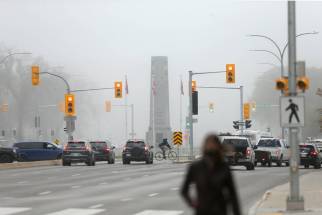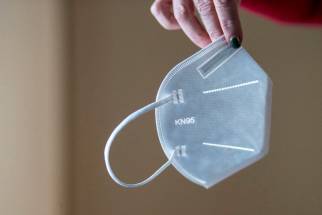Drowning in pandemic debt ‘Tough road ahead’ for the two-thirds of small Manitoba businesses that have taken out loans in order to survive the coronavirus
Read this article for free:
or
Already have an account? Log in here »
To continue reading, please subscribe:
Monthly Digital Subscription
$0 for the first 4 weeks*
- Enjoy unlimited reading on winnipegfreepress.com
- Read the E-Edition, our digital replica newspaper
- Access News Break, our award-winning app
- Play interactive puzzles
*No charge for 4 weeks then price increases to the regular rate of $19.00 plus GST every four weeks. Offer available to new and qualified returning subscribers only. Cancel any time.
Monthly Digital Subscription
$4.75/week*
- Enjoy unlimited reading on winnipegfreepress.com
- Read the E-Edition, our digital replica newspaper
- Access News Break, our award-winning app
- Play interactive puzzles
*Billed as $19 plus GST every four weeks. Cancel any time.
To continue reading, please subscribe:
Add Free Press access to your Brandon Sun subscription for only an additional
$1 for the first 4 weeks*
*Your next subscription payment will increase by $1.00 and you will be charged $16.99 plus GST for four weeks. After four weeks, your payment will increase to $23.99 plus GST every four weeks.
Read unlimited articles for free today:
or
Already have an account? Log in here »
Hey there, time traveller!
This article was published 16/02/2022 (1395 days ago), so information in it may no longer be current.
Many Manitoba entrepreneurs can’t see the post-pandemic horizon over their mountains of debt.
The average Manitoban small business carried roughly $80,000 of COVID-19 related debt in January, according to data collected by the Canadian Federation of Independent Businesses’s Manitoba chapter.
Almost two-thirds of Manitoba businesses — 64 per cent — have taken on extra loans because of the pandemic.
“I’m trying to really avoid sitting in my bed at night and stressing about being able to pay it back,” said Willows Christopher, co-owner of Shrugging Doctor Beverage Company.
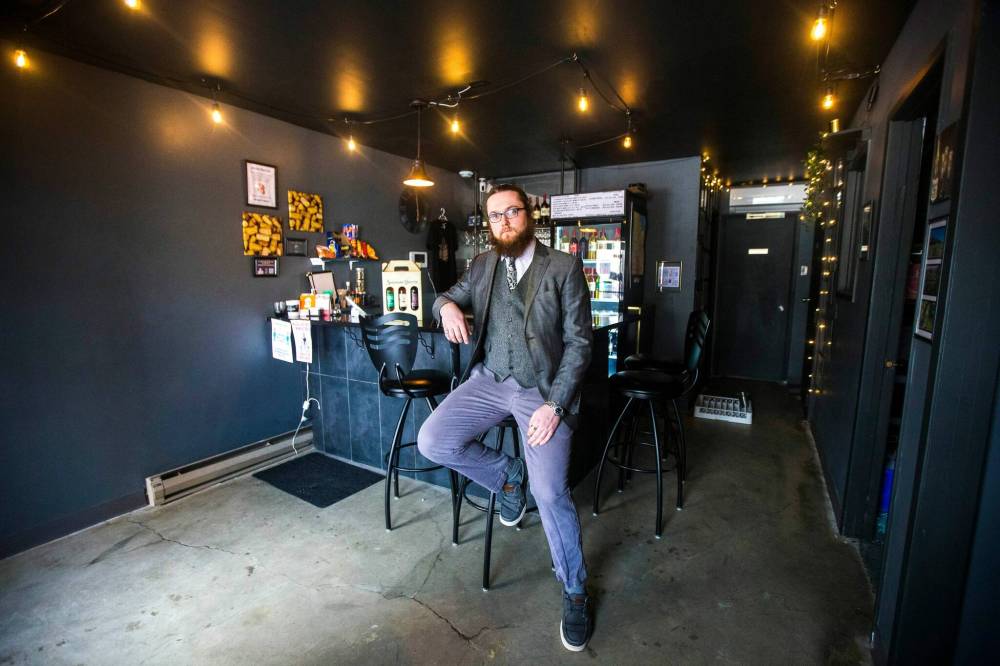
He said he’s tied his personal finances to the company to keep it afloat.
“If the business goes under, I probably have to declare personal bankruptcy,” he said. “I’m all in.”
Things were booming pre-pandemic: within three years of its 2017 launch, Shrugging Doctor had gone from $80,000 in annual sales to nearly $500,000, Christopher said. The owners opened a bar and invested in a vineyard.
Now, Christopher says he has a hard time socking money away for the Canadian Emergency Business Account loan he must pay back by the end of 2023.
‘People just kind of need to be aware that if they don’t support local, then there’s not going to be any local.’– Willows Christopher, co-owner of Shrugging Doctor Beverage Company
“Last month we were looking at the banks like, ‘OK, we can’t put anything away this month because we don’t have the sales to support it, because the bills still have to be paid,’” he said.
And, costs of everything from heat to wine bottles have increased while Shrugging Doctor’s bar has spent months at limited capacity or fully closed.
“I haven’t really had any unencumbered time to operate the bar since February 2020,” Christopher said.
His business — still a start-up pre-pandemic — already had loans before COVID-19 settled. Christopher called the Shrugging Doctor “resilient” and said he’s ready to work the 18-hour days he did during the company’s early years if it means the business will once again thrive.
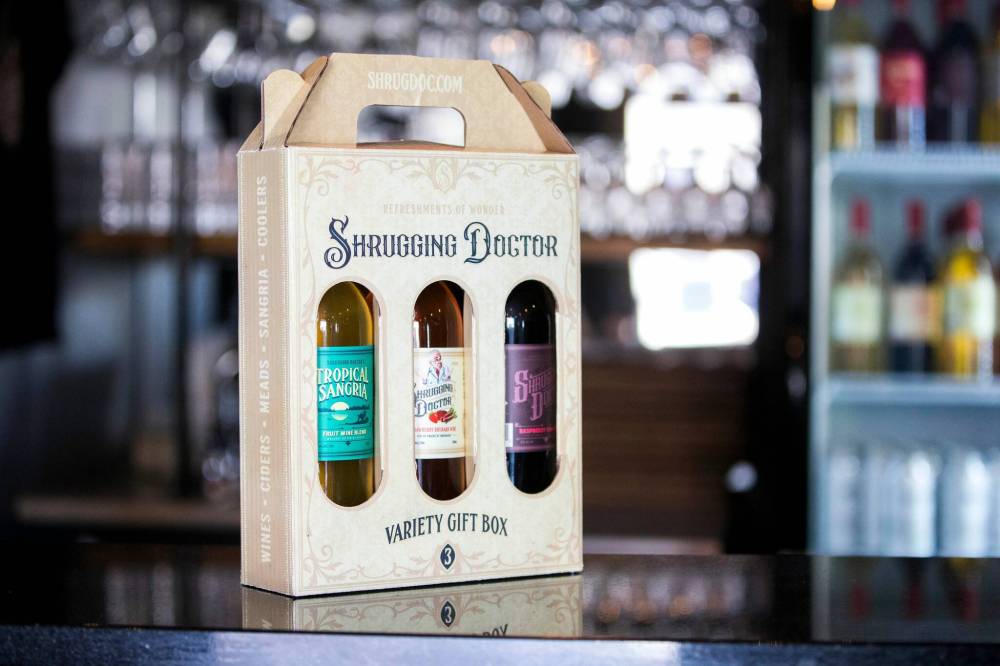
“People just kind of need to be aware that if they don’t support local, then there’s not going to be any local,” Christopher said.
“A lot of stores and little shops aren’t going to last much longer if this continues.”
The level of COVID-related debt has remained steady throughout the pandemic, said Kathleen Cook, the CFIB’s senior policy analyst for Manitoba.
“The real issue is that it’s now just an albatross hanging around the neck of business owners,” she said.
Nearly three-quarters of Manitoban businesses say it’ll take over a year to repay their debt, according to CFIB data.
“Growth and expansion just become out of the question,” Cook said. “For the most part, it becomes about survival.”
Pre-pandemic, entrepreneurs would take loans to launch or broaden their business. That’s largely shifted to keeping the doors open, Cook said.
“If the business goes under, I probably have to declare personal bankruptcy. I’m all in.” – Willows Christopher
Manitoba businesses are generally better off than the rest of Canada: an average company faces $158,000 worth of COVID-19-related debt nationally, nearly double the province’s average, according to the CFIB.
Cook attributes Manitoba’s lighter debt load to less severe public health restrictions than some other provinces. And, as of Tuesday, capacity limits were removed for businesses like restaurants and entertainment venues. Proof of vaccination requirements and mask mandates are scheduled to banish next month.
Still, “it’s a tough road ahead” for small businesses, Cook said.
She called government subsidies a lifeline for many businesses over the past two years.
Across Canada, about 80 per cent of businesses accessed a CEBA loan, according to Jeff Brown, the head of small business at Equifax, a credit reporting agency.
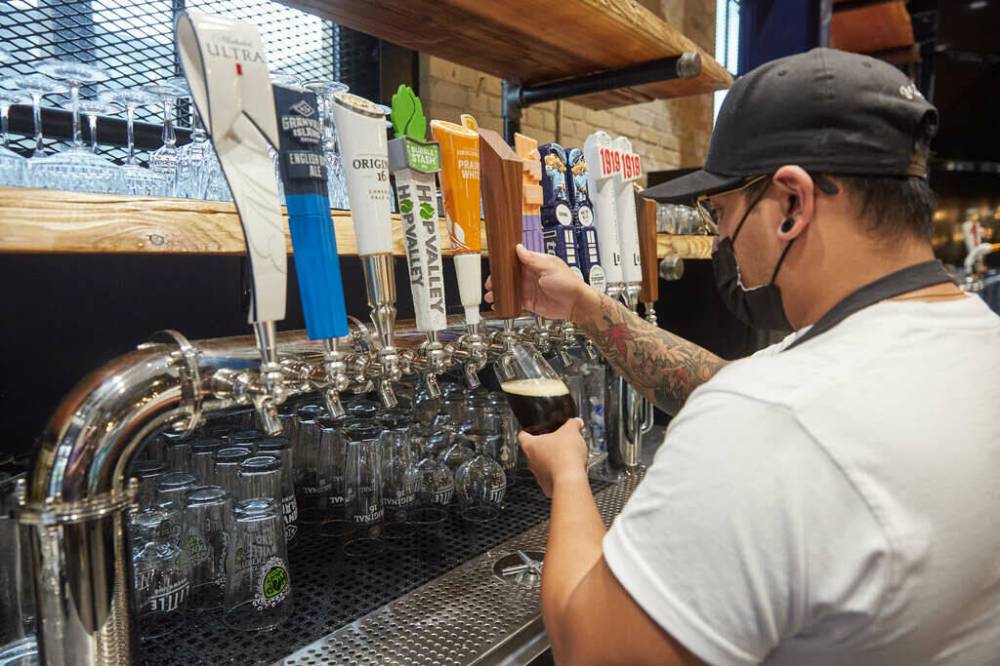
“All these government loans have been great to reduce debt with financial institutions and with major suppliers,” Brown said.
Some have used the up to $60,000 CEBA loan Ottawa provided them, interest free, to pay down outstanding debts with higher interest rates.
That seems to be the case in Manitoba, Brown said.
The province has significantly decreased its rate of delinquency debt (that’s where businesses have unmet payments 90 days beyond deadline, Brown explained). One in 40 Manitoban businesses dealt with delinquency debt as of 2021’s third quarter, according to Equifax data.
Manitoba’s delinquency rate has decreased 41.5 per cent since the beginning of the pandemic, compared to 12.7 per cent nationally, Brown said. It’s the biggest decrease in delinquency debt rate across Canada, when comparing 2021’s third quarter to 2019’s.
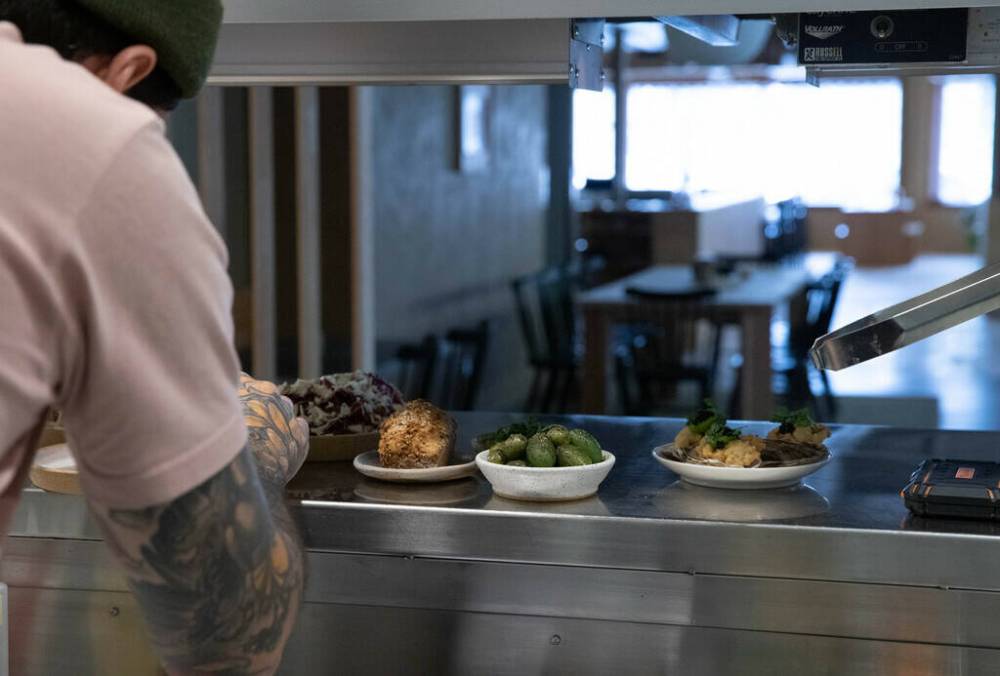
“It gives (Manitoba businesses) a stronger ability to be able to pay back these federal loans compared to other provinces, which… bodes well for the long-term outlook of Manitoba,” Brown said.
The province’s hospitality sector is smaller than other major cities; it might be the reason for the gap in delinquency debt rate drops, Brown said. He advised that companies pay their federal loans back slowly now so they don’t hit a wall next year.
Restrictions on restaurants are detrimental to the viability of the industry’s future, said Shaun Jeffrey, CEO of the Manitoba Restaurant and Foodservices Association.
Pre-pandemic, a typical restaurant would see a profit of 4.5 per cent. That’s dropped since March of 2020.

“When you operate under margins that are so thin like our industry is, your ability to be able to incur, manage (and) pay down debt is very hard,” Jeffrey said. “Those debt loads are starting to get to pretty insurmountable levels.”
Mortgages and bills were deferred in the early stages of the pandemic. Now, the deferments and lines of credits need to be paid, Jeffrey said.
“It’s getting to a point where… a lot of operators are wondering how (there) will ever be a point where they’re not paying this debt back,” he said.
“I’ve seen more businesses close in the last six months than I did probably the previous 18,” he added.
Small subsidies aren’t cutting it — long-term supports must be in place, Jeffrey said.
He expects it will take 10 years for the restaurant industry to fully recover, barring any new surprises the virus unleashes.
‘Extensions of credit are really important for business under normal times. It’s even more important for business under uncertain and changing times,” said Fletcher Baragar, an economics professor at the University of Manitoba.
However, long-lasting programs present their own challenges, he said.
“We don’t want these sort of (government) programs to, in general, provide bail-outs for businesses that… are in economic trouble anyways.”
Zombie firms, which survive by tapping banks and capital markets, may be supported by government long past their expiry date, Baragar said. Such businesses take up space and resources that a new, viable company could use, he said.
“Like so much of the economy, if you push it too far, too much, then the negative aspects of it start to become stronger and more influential,” Baragar said.
He expects businesses to continue to face challenges — including supply chain snarls and rising inflation — as 2022 progresses.
gabrielle.piche@winnipegfreepress.com
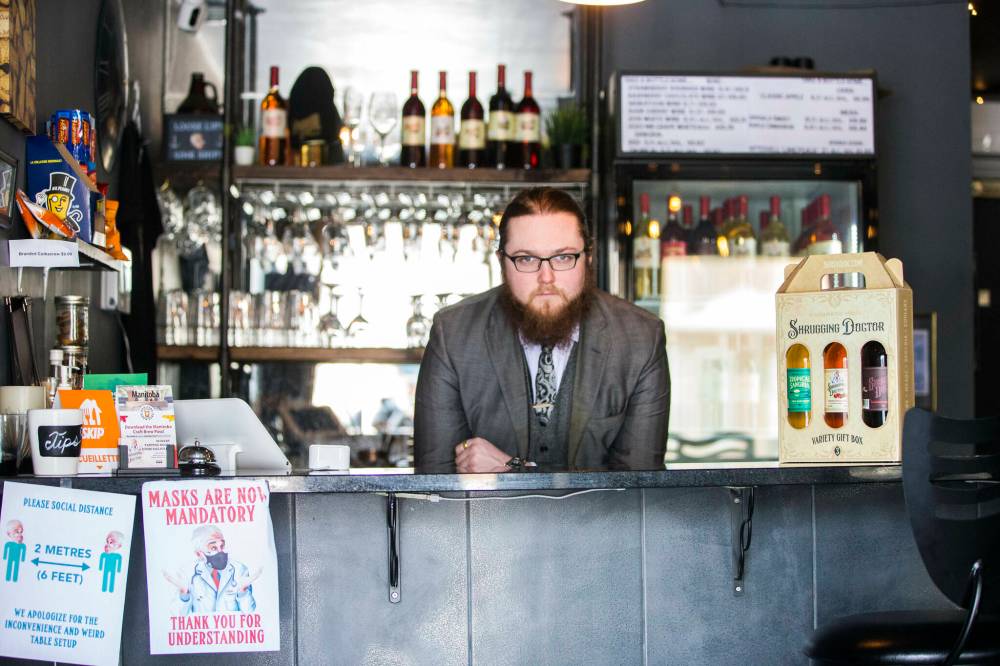

Gabby is a big fan of people, writing and learning. She graduated from Red River College’s Creative Communications program in the spring of 2020.
Our newsroom depends on a growing audience of readers to power our journalism. If you are not a paid reader, please consider becoming a subscriber.
Our newsroom depends on its audience of readers to power our journalism. Thank you for your support.




